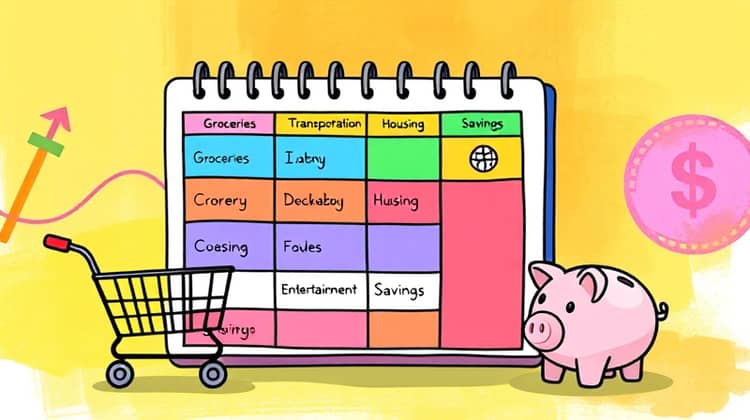Mastering Expense Tracking: 5 Tips for Consistent Budgeting

Tracking expenses effectively is essential for maintaining a balanced budget and avoiding overspending. By keeping a close eye on your financial habits, you can identify areas for improvement and ensure that you stick to your financial goals.
In this article, we will explore five practical tips to enhance your expense tracking experience. These strategies will help you stay organized, informed, and more in control of your finances.
1. Choose the Right Tools

Selecting the right tools can significantly ease the process of tracking your expenses. Whether you prefer traditional methods like pen and paper or modern alternatives like budgeting apps, choosing what works best for you is crucial.
Consider factors such as usability, features, and accessibility when picking your tools. Tailoring your choice to your specific needs can make a notable difference in how effectively you manage your finances.
- Budgeting apps (e.g., Mint, YNAB)
- Spreadsheets (e.g., Excel, Google Sheets)
- Expense tracking notebooks
- Mobile expense tracking apps
By carefully selecting tools that fit your lifestyle, you establish a foundation for good expense tracking habits. This choice will support you in maintaining an organized approach to managing your money.
2. Set Clear Categories

Establishing clear categories for your expenses is a key element of effective tracking. By dividing your spending into distinct sections, you gain better insight into where your money goes.
For instance, you might create categories such as groceries, utilities, housing, entertainment, and savings to guide your tracking efforts. This classification helps you identify areas of overspending and where adjustments can be made.
- Groceries
- Transportation
- Housing
- Entertainment
- Savings
Setting clear categories not only simplifies tracking but also aids in creating a more comprehensive budget. With well-defined lines, you can assess your financial health and prioritize your spending accordingly.
3. Record Expenses Immediately

One of the best practices in expense tracking is to record your expenses immediately. Delaying this task can lead to forgotten transactions and potentially derail your budgeting efforts.
By logging your expenses right after making a purchase, you stay aware of your spending habits and can adjust your budget in real-time to avoid overspending.
- Save receipts and record them at least once a day.
- Use apps to capture and categorize expenses on the go.
- Create a habit of noting expenses before leaving a store.
Making it a priority to record your expenses promptly ensures that your budget remains accurate and reflective of your current finances. This routine builds a stronger awareness of your spending patterns.
4. Review and Adjust Regularly

Monitoring your expenses is not a one-time task but a continuous process. Regularly reviewing your expense reports helps you to stay on top of your financial situation.
Set aside time each week or month to go through your spending, analyze trends, and make necessary adjustments to your budget based on your findings.
- Set a specific day each week or month for review.
- Analyze spending trends against your budget.
- Adjust categories and budgets as needed.
Carrying out these reviews helps maintain financial discipline and keeps you aligned with your financial goals. Adjusting your budget as your needs evolve is essential for ongoing financial health.
5. Involve the Whole Family

When it comes to budgeting and expense tracking, involving the whole family can make a significant impact. Collaborative discussions about finances can foster a culture of responsibility and awareness regarding spending.
By including everyone, you not only share the responsibilities but also educate family members on the importance of budgeting and financial planning. This collective approach can enhance accountability and commitment.
- Schedule regular family finance meetings.
- Discuss and agree on budget categories together.
- Encourage everyone to track their own spending.
Working together as a family not only helps to ease the tracking process but also promotes financial literacy among members. This shared involvement cultivates a team spirit focused on achieving financial stability and goals.
Conclusion

Mastering expense tracking provides a solid foundation for financial security and responsibility. By following the tips outlined in this article, you'll be well-equipped to take control of your finances and make informed decisions.
Remember, the key to successful expense tracking is consistency along with the willingness to adapt and learn from your financial habits. With time and practice, you'll develop better money management skills that will serve you well throughout your life.






